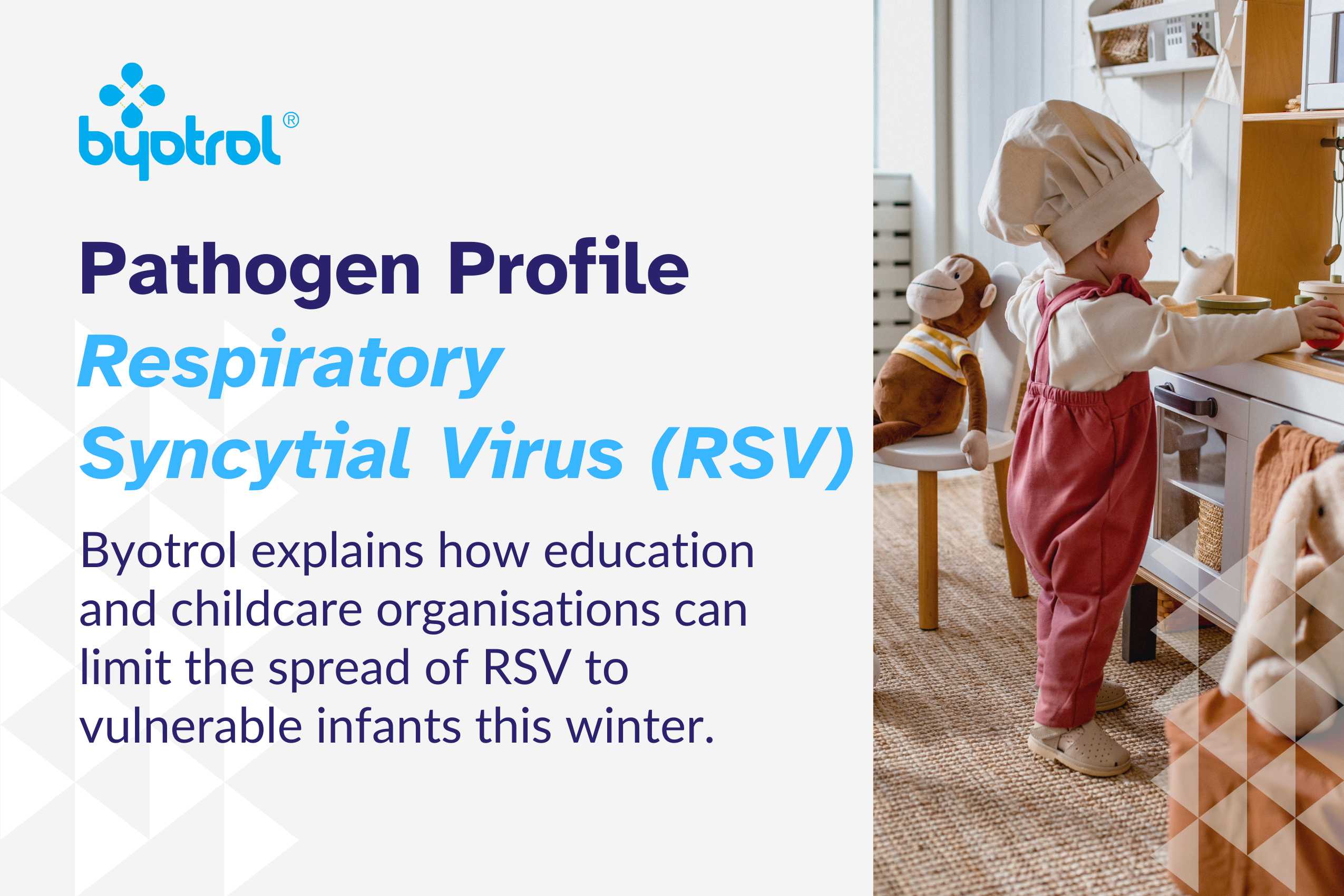Delay to Vaccine Puts Infants at Risk Over Winter
A threat to the health and well-being of infants in the UK this winter has been highlighted by top doctors, as the introduction of two vaccines for Respiratory Syncytial Virus has still not been approved.
Whilst RSV causes only mild respiratory symptoms in the majority of people, it can cause bronchiolitis, pneumonia, and, in some cases, can be fatal. In the UK, RSV is responsible for 30,000 hospital admissions each winter which can severely delay elective procedures, as hospitals struggle to cope. NHS data shows that from November to the end of December last year, an average of 119 children’s beds a day were unavailable due to RSV outbreaks.
To limit the hospital admissions and the strain on the NHS, education, and childcare settings, as well as indoor play areas have a duty of care to ensure effective infection prevention and control strategies are in place to reduce the spread of RSV, therefore limiting exposure to vulnerable family members.
Virus characteristics
Respiratory syncytial virus (RSV) is an enveloped RNA virus, in the same family as the human parainfluenza viruses and mumps and measles viruses.
RSV is the most common cause of bronchiolitis in infants. Over 60% of children have been infected by their first birthday, and over 80% by 2 years of age. The antibodies that develop following early childhood infection do not prevent further RSV infections throughout life. The full extent to which adults are affected by RSV remains unknown.
Infants under the age of one year and the elderly are at the greatest risk. While most RSV infections usually cause mild illness, infants aged less than 6 months frequently develop the most severe disease such as bronchiolitis and pneumonia, which may result in hospitalisation. Children born prematurely, or with underlying chronic lung disease, and the elderly with chronic disease are also at increased risk of developing severe disease.
Preventing Transmission of RSV
The transmission of RSV can be reduced through standard infection control practices such as respiratory hygiene, practicing effective hand hygiene, and the routine disinfection of surfaces, particularly high-frequency touchpoints such as door handles.
Ideally, people with colds should avoid close contact with newborn babies, infants born prematurely (before 37 weeks), children under 2 born with heart or lung conditions, and those with weakened immune systems. Smoking in the presence of young children is a risk factor for severe RSV infection.
Surface disinfectants that are effective against RSV should have been tested to the European Standard EN 14476 against RSV or Vaccinia virus, which is the surrogate for all enveloped viruses. This is usually identified on the product back label, or in the technical information pack from the manufacturer and it is advisable to check that your current disinfectant or sanitiser has this test data, to ensure your cleaning protocols will be effective. Attention should be paid to the contact time that your disinfectant requires to achieve this performance, as this can vary greatly.
More frequent hand washing is advisable, and hand sanitiser which is effective against enveloped viruses is also necessary for use when access to soap and water is not available. Regular facilities checks must ensure soap and sanitiser dispensers are in working order and that sanitiser is present.
Communication with staff and visitors is extremely important. Compliance with cleaning protocols relies upon the understanding of everyone who enters the building, so communicating the correct practices and products to both staff and visitors will help to improve compliance.
Byotrol Disinfectant Products Effective Against RSV
Byotrol’s 4in1 Multi-Purpose Disinfectant Cleaner has been rigorously tested to European Standard EN 14476 and British Standard PAS 2424 against Vaccinia virus, to confirm it is effective for the purpose of preventing and controlling the spread of Respiratory Syncytial Virus in a variety of environments including education, childcare, and public spaces such as children’s play centres.
Byotrol 4in1 Multi-Purpose Disinfectant Cleaners are available in an economical 5 litre concentrate format and a ready-for-use 750ml trigger spray, which is ideal for high-frequency touchpoint cleaning such as door handles, telephones, and lift buttons.
Byotrol’s 4in1 Multi-Purpose Disinfectant Cleaner benefits from proven long-lasting protection against Respiratory Syncytial Virus (RSV) over 24 hours, providing organisations and parents with additional peace of mind, that surfaces are protected between cleans.
INVIRTU Hand Foam Sanitiser is effective against all enveloped viruses, and is both dermatologically tested and alcohol-free, making it particularly suitable for environments where infants are children are present.
For more information on Byotrol products and how they can help to protect your organisation, please click here or contact us.
Use biocides safely. Always read the label and product information before use.
